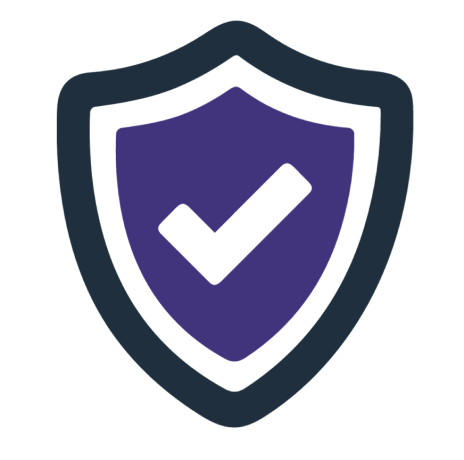Safeguarding
Read all about Gaisce’s commitment to Safeguarding.

Gaisce’s Commitment to Safeguarding
As an organisation, Gaisce – The President’s Award, is committed to the safety and wellbeing of children and young people who participate in the Gaisce Award programme, and ensuring they are safeguarded from harm. Individuals (President’s Award Leaders, “PALs”) and organisations (Gaisce Award Partners) that deliver the Gaisce Award programme are provided with the Children First Guidelines, to ensure that they are aware of their responsibilities.
Gaisce Award Partners are required to have their own Safeguarding policies and procedures in place that PALs will be bound by and required to follow.
Gaisce – The President’s Award also has an internal policy outlining how it demonstrates commitment to keeping children and young people safe in relation to recruitment and management of staff and volunteers and its relationships with supporters, partners, contractors and suppliers.
The Gaisce ‘Designated Liaison Person’ (Marion Irwin-Gowran) and a ‘Gaisce’s Deputy Designated Liaison Person’ (Karol Quinn) act as the focal point for all issues relating to child protection and the safety and wellbeing of young people involved in the Gaisce Award programme.
Gaisce – The President’s Award demonstrates its commitment to the safety of the young people who participate in the Gaisce programme in its recruitment of PALs.
Prerequisite of being a Gaisce PAL
- The prospective PAL is over 18 and aligned to a youth organisation.
Application Process
- The prospective PAL is required to complete an online application form.
- Gaisce undertakes Garda Vetting on the prospective PAL.
- Gaisce requires two written and two verbal references for each prospective PAL.
- All documents relating to the PAL application process, refereeing and Garda Vetting are stored securely in Gaisce’s online database.
Training
- All PAL applicants must complete the Tusla “Children First E-Learning Programme” training and Gaisce PAL Training.
- Gaisce ensures that all PALs are provided with the name and contact details of Gaisce’s Designated Liaison Person (Marion Irwin-Gowran) and Deputy Designated Liaison Person (Karol Quinn).
Other
- Gaisce – The President’s Award ensures that all staff members involved in the support of PALs undertake training on Child Protection (provided externally) and are fully aware of Gaisce’s internal Safeguarding Policy and Guide for PALs and Gaisce Award Partners.
Procedures for Overnights
When taking participants away on their Adventure Journey, PALs and other adults involved should consider the following matters: Safety, Insurance, Parental/Guardian knowledge and consent, Medical concerns, Sleeping arrangements, Age profile of participants, Adult to participant ratios, Emergency contact details, Access to a phone and Code of behaviour.
Insurance
The safety and welfare of participants is the primary responsibility of PALs and their organisation, the Gaisce Award Partner (GAP). Gaisce Award Partners should have employer’s liability insurance and public liability insurance with limits of indemnity of no less than €13m and €6.5m respectively. Travel Insurance for trips outside of Ireland (including NI) is the responsibility of the Gaisce Award Partner and/or participant/parent/guardian, as appropriate. The PAL should ensure participants are aware of this for all award levels. Given the breadth of Gaisce Award activities, your child may choose to undertake activities that are not directly managed or organised by their GAP. If this is the case, you, as their parent/guardian/carer, are responsible for ensuring that the activity is properly managed and insured, and that the adults are suitably qualified and checked. This activity must be approved by the PAL, in consultation with your child, to ensure it meets the Gaisce Award standards.
Use of Technology and Social Media
PALs must use technology with ethical and social considerations in mind. They should encourage the same of the Participants while they are undergoing the Award. Bullying and intimidation of any kind will not be tolerated. All images and videos should be consented to and agreed upon before taking and publishing. PALs are likely to have their own media consent in place at their respective organisations. If they don’t they can request a media consent form from Gaisce’s Communications Team.
No more and no less than any member of the public, PALs and other individuals involved in the delivery of the Gaisce programme, have a legal responsibility to report child abuse. Ignoring the signals or failing to intervene may result in ongoing or further harm to a child and those found guilty can be fined (no upper limit) and/or imprisonment for a term not exceeding 10 years.
PALs Reporting Abuse
Following disclosure of abuse, PALs should follow the procedures as outlined in the safeguarding policy of the organisation they work or volunteer with. This includes writing down what was said; all names of those involved, what happened, where and when, witnesses, and any other significant factor, such as visible marks or any signs observed. If the incident or disclosure occurred in the context of delivering the Gaisce programme, this should be clearly indicated and explained in the note. This note or report should be signed and dated. PALs should ensure the information they collect is treated with utmost confidence.
PALs should not investigate allegations of abuse. Instead, they should following their own recording and reporting procedures to their Designated Liaison Person (DLP).
Under no circumstances should a child or young person be left in a situation that exposes them to harm or to the risk of harm. In the event of an emergency, where a PAL thinks a child or young person is in immediate danger, they should contact the Gardaí. Parents and guardians will be notified where any report has been made to Tusla or the Gardaí by those organisations in regard to the person being under 18.
Reporting Abuse of a Gaisce Employee, a PAL or Any Third Party
If Gaisce receives an allegation of abuse, whether that allegation concerns an employee in Gaisce, a PAL, another adult involved in the delivery of the Gaisce programme, or any third party, action will be taken by the organisation. Gaisce will deal with allegations, including responding to and/or reporting allegations promptly and appropriately.
If it has been decided after evaluation that the allegation received or concerns will not be formally reported, the individual who reported will receive a clear written statement of the reasons why the reported concern is not being reported to the relevant authorities. The individual will be advised that, if they remain concerned, they are free to consult with or report to the statutory authorities themselves.
